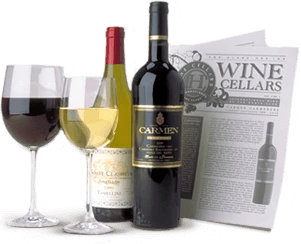As a bright, clean, immensely refreshing wine, the 2009 Emile Beyer Tradition Pinot Blanc marries balance and charm to exceptional flavor. It exudes an intriguing aroma of crisp mountain apples, pears, and cheese that makes sniffing the wine as much fun as drinking it. On the palate Christian Beyer’s Pinot Blanc comes alive with finely toned fruit flavors, pinpoint minerality and a subtle hint of spice, all wrapped up in a caressing texture that makes it easy to drink and enjoy. Yet, what makes Beyer’s Pinot Blanc exceptional as well as intriguing is its ability to play the chameleon, ever-changing in the glass as it presents different facets and flavors with every sip. Although some may prefer this Pinot Blanc icy cold, we suggest tasting it at varying temperatures. As good Pinot Blanc breathes and warms a bit in the glass, it takes on broader, more seductive tones that reveal wonderful subtlety and nuance of flavor. Such is the case with the 2009 Emile Beyer Tradition Pinot Blanc. Consequently, we suggest giving this delicious Pinot Blanc a moderate chill (40° F), and then allowing it to unfold leisurely in the glass.
The 2009 Emile Beyer Tradition Pinot Blanc goes down easily, with or without food. However, its versatility and inviting manner make it easy to pair with a wide variety of cuisines and eclectic foods, even many dishes that are normally difficult to pair with wine. Not surprisingly, traditional Alsatian favorites such as Choucroute Garnie (ham, pork ribs, and sausage cooked in sauerkraut and served with spicy mustards), Quiche Lorraine, leek tarts, country pâtés, and pork roasts provide exciting, filling accompaniments to Christian Beyer’s beautifully balanced 2009 Pinot Blanc. Equally rewarding are lighter, heart healthy selections such as baked or lightly grilled cod, flounder, grouper or monk fish. Hors d’oeuvres, mussels, scallops, and fish chowders supply additional first-rate accompaniments. Asian stir fries and vegetables such as asparagus, which are often difficult to pair with wine, pose no worries for this exceptional Pinot Blanc either. So, why not experiment? Enjoy!
Domaine Emile Beyer and nearly five centuries of history in Alsace remain intertwined. Since the year 1580 at least 14 generations of the Beyer family have cultivated vines in the picturesque village of Eguisheim, unquestionably one of the greatest wine communes in Alsace. Each successive generation of Beyers, profoundly rooted in the vineyard and land, have in turn been able to pass on their passion for wine to the next generation. And we the consumers are the beneficiaries.
Under the present leadership of youthful Christian Beyer, the venerable domaine of Emile Beyer cultivates 17 hectares (37.5 acres) of prime vineyards in Eguisheim, including two grand cru sites, from which Beyer fashions exceptional wines. “Giving happiness, with elegant wines: this is what I take pride in doing,” is Christian Beyer’s mantra, and by all accounts he succeeds in doing just that. From estate vineyards Beyer produces an enviable portfolio of wines, which include outstanding Pinot Blanc, Pinot Gris, Riesling, and Gewürztraminer. Muscat, Sylvaner, and Pinot Noir also figure highly in the mix. In short, there is no dearth of fine wine from Domaine Emile Beyer.
Alsace is quite possibly the most picturesque wine region in all France. It is an enchanted land of beautifully restored half-timbered houses, flower bedecked balconies and window boxes, and of course vineyards. Alsace is bounded by the Vosges Mountains to the west, which block out the dreary maritime weather that plagues so much of the rest of northern France, and the Rhine River and Germany to the east. On account of its favored position and corresponding climate, Alsace is the sunniest province in northern France. This extra sunshine makes Alsace an ideal spot for the cultivation of the vine and the production of premium wines.
In Alsace, white wine reigns supreme. This is a matter of local preference and tradition, in spite of the province’s production of some very noteworthy Pinot Noir wines and the contemporary clamor for red wine. Pinot Blanc is the staple of Alsace, where it makes a fresh, flavorful wine of considerable merit. Alsace also crafts some of the world’s most compelling white wines from Riesling, Gewürztraminer, and Pinot Gris – the vast majority of which are made dry rather than sweet. The relative dryness of most Alsatian wines may come as a surprise to many, especially to those for whom German sounding names and tall thin green bottles are synonymous with sweetness. However, Alsatian wines are unique unto themselves and rarely do they resemble their German counterparts in style, flavor, or level of residual sugar. Robert Parker Jr. has called the wines of Alsace “some of the greatest white wines produced on the planet,” and some of the most pleasurable and hedonistic, too, we are pleased to add.

Enjoy Limited Production Estate
Bottled Wines
Discover limited production estate bottled wines such as Vergenoegd's internationally
acclaimed 2005 Cabernet Sauvignon, imported exclusively for our members.

